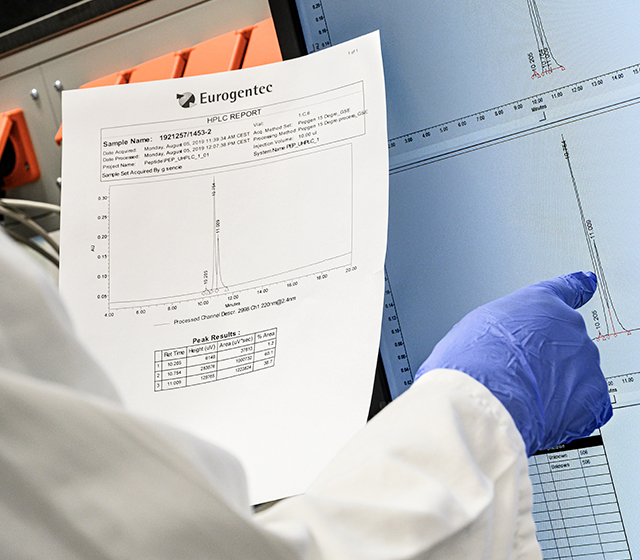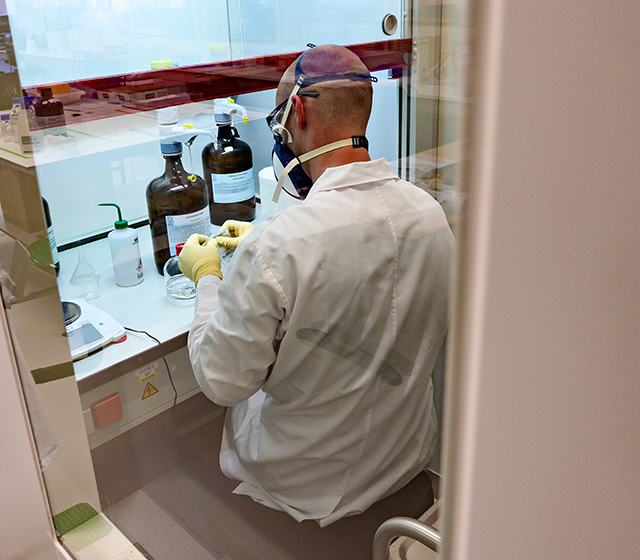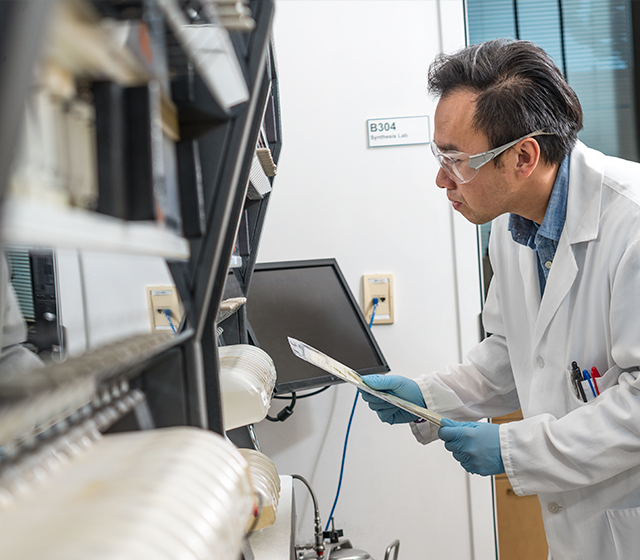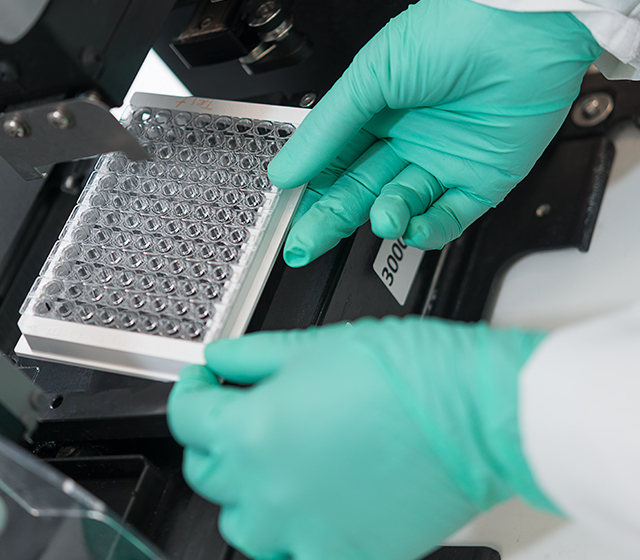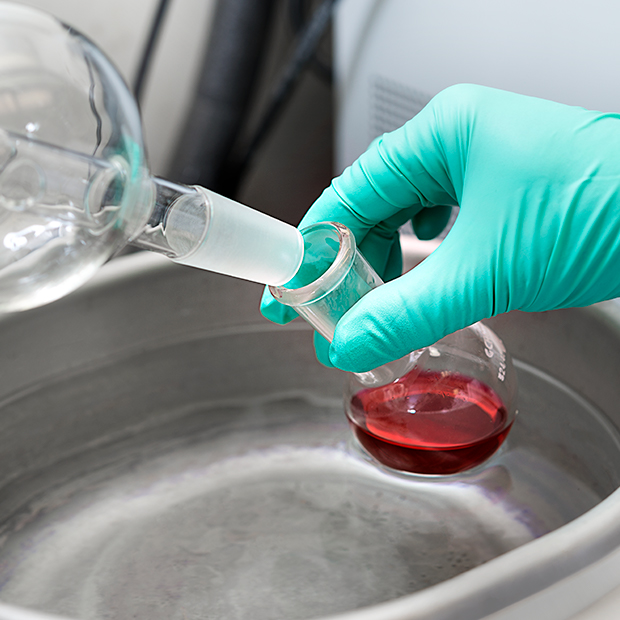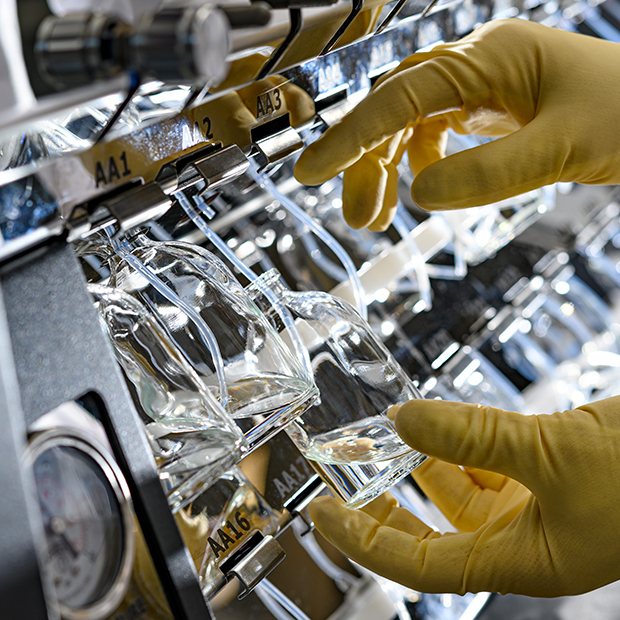Custom peptides synthesis
Disulfide-bridged Peptides
Our long standing expertise in the synthesis of disulfide bridged peptides, utilizes stepwise protection or natural folding strategies to form single or multiple disulfide S-S bonds.
Specifications
- Length : Up to 60 amino acids
- Purity : ≥95%, ≥90%, ≥85%, ≥70% or crude
- Quantity : 1 mg minimum up to gram quantities, delivered as gross weight or net weight.
S-S Bond Formation
Peptide disulfide bridges are typically formed between two cysteine residues within a peptide sequence (intramolecular), or between cysteine residues in two different peptide chains (intermolecular/interchain). The cysteine residues can be located at the peptide N-terminus, C-terminus, or internally.
Intra- and Intermolecular S-S bonds
1-2 disulfide S-S bridges : We utilize orthogonal protection strategies to control specific bond formations for peptides containing 1-2 bridges.
1-2 disulfide S-S bridges + 1 free unprotected cysteine residue (N-term, C-term, or internal) : For peptides containing 1-2 bridges, we can also include a free unprotected cysteine residue on the sequence useful in conjugation.
≥ 3 disulfide S-S bridges : We can utilize either orthogonal protection strategies to control specific bond formations or form them naturally by creating the most thermodynamically stable product.
≥ 4 disulfide S-S bridges : Formed naturally by creating the most thermodynamically stable product.
Disulfide bridge(s) formed between cysteine residues of two (or more) peptide chains
MALDI matrix cluster ions as internal references for ion mobility measurements.
Mwangi JN, Todd DA, Chiu NH.
Springer Berlin Heidelberg; 2019.
From AnaSpec (Eurogentec's US subsidiary) : The 95% pure peptide (YSTCDFIM), was cyclized between the sulfur group of cysteine residue and the C-terminal and has a monoisotopic mass of 960.3721 Da.
Applications
- Stabilization of secondary conformations
- Templates for novel drug development via engineering favorable properties into biologically active compounds
- Scaffolding that forms biochemical tools to probe disease mechanisms such as Protein-Protein Interactions
- Generation and screening of disulfide-based macrocyclic ligands libraries towards target affinities eg. RGD sequence motifs
